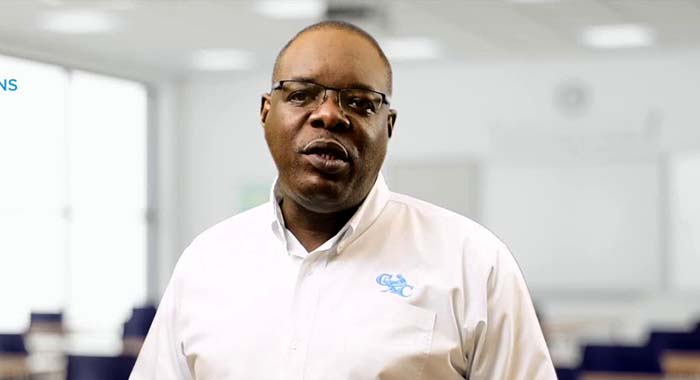BRIDGETOWN (CMC) — The Barbados-based Caribbean Examinations Council (CXC) Wednesday announced a three-week “delay” in the sitting of the regional examinations after several local and regional teachers’ unions and at least one education minister publicly calling for a postponement.
CXC Registrar and chief executive officer, Wayne Wesley, told a regional news conference that the decision to “delay” the writing of the exams had been taken by the CXC Council.
“The Caribbean Examination Council stands in solidarity with the region and the international community as we grapple with the impact of COVID-19 on our way of life. The council recognises the impact of COVID-19 on the education system in general and more specifically on the schedule of CXC’s regional examinations,” he said.
Wesley told reporters that the governing board of the CXC, comprising governments, was held on Wednesday “following feedback from regional ministries of education on the timing of the 2022 regional examinations.
“Members of Council reviewed and reached a consensus on the recommendations from CXC’s School Examination Committee on the strategy for 2022 regional examinations,” Wesley said, noting that “after careful deliberations and consideration of all the pertinent issue” the Council agreed on a new path regarding the revised strategy for 2022 regional examinations.
“A delay in the sitting of the regional examination by three weeks. This will provide candidates with additional time to prepare for the examinations. Therefore the examinations will commence on Monday, May 23, 2022 and the results projected to9 be released in late August or early September,” the CXC Registrar told reporters.
Last week, Jamaica’s Education Minister, Fayval Williams, said Kingston was seeking an urgent meeting of the CARICOM Council for Human and Social Development (COHSOD), to discuss the CXC issue and that she had written a letter to the Barbados Minister of Education, Kay McConney, who is also chair of COHSOD, requesting the urgent meeting.
The Jamaica Teachers’ Association had described CXC’s decision not to push back its exams as disturbing and the president of the Barbados Secondary Teachers Union (BSTU), Mary Redman, called for the postponement of this year’s sitting to allow students to adequately prepare themselves after nearly an entire year of online instructions due to the coronavirus (COVID-19) pandemic.
The Caribbean Union of Teachers (CUT) called for a delay of the exam timetable by three weeks to allow sufficient time for teachers and students to complete the syllabi and satisfy the school based assessments (SBA) component; reduce SBA requirements, especially for subjects with a practical component; and advise of the topics to be covered in the examination.
The CXC had earlier announced that its Caribbean Advanced Proficiency Examinations (CAPE) scheduled for May 2 to 10 June woulld proceed and students will sit the Caribbean Secondary Education Certificate (CSEC) from May 2 to June 3; the Caribbean Certificate of Secondary Level Competence (CCSLC) from June 6 to 9; and the Caribbean Primary Exit Assessment (CPEA), May 12 and 13.
The Council also revealed that the Vocational Qualification (CVQ) assessments would be conducted between May and July and that the specific dates would be determined by individual participating territories.
But Wesley told reporters the new details regarding the examinations will be communicated to the various countries and that the extension of the submission SBAs from the June 30 deadline “by a further two weeks for the submission of both CAPE and CSEC SBAs”.
He said the release of “broad topics” will be communicated to the candidates and that CXC will share with the ministries of education the communication with candidates.
“The broad topics to be assessed are Paper 2. We continue to work with our stakeholders in the best interest of our students across the region. It is always important that our collective will and consensus on matters of regional importance.
“We have obtained that consensus and by that reason Council would have approved the foregoing decision,” Wesley added.






